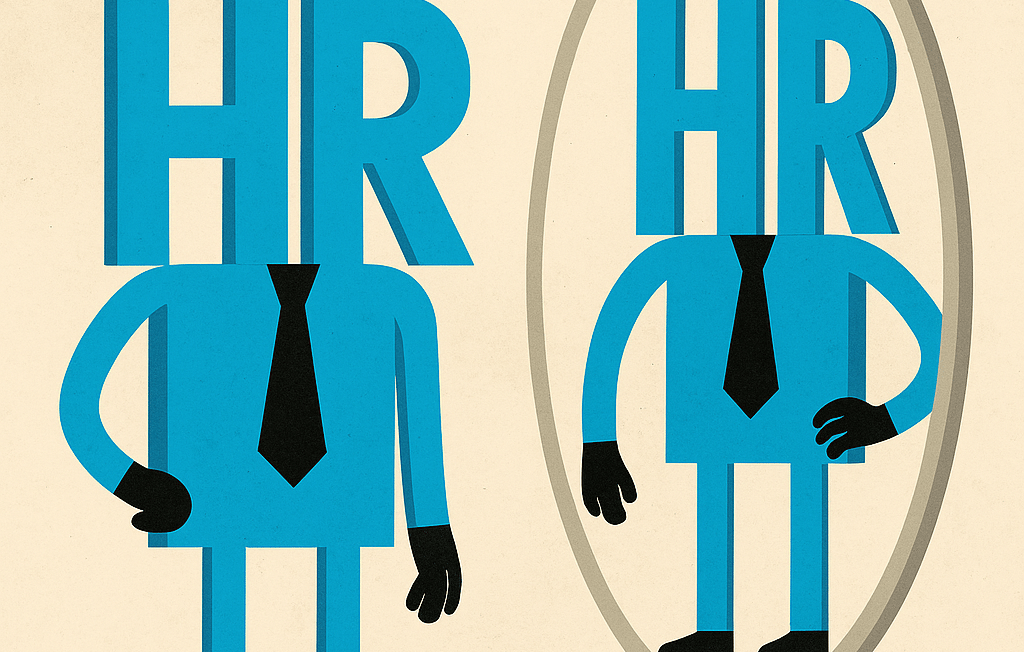HR Shield Wall - Setting the Scene
The first article in my blog and podcast series on What is happening with Human Resources in the newspaper headlines and the workplace.
Paul Carter
11/2/20256 min read


Are you proud to work in HR? It sounds like a question in a staff survey which most HR professionals would spend hours talking about in a listening circle and then forget to answer. But it was one I asked myself when I returned to my hometown for drinks.
It took about ten seconds to describe my life. Then I hesitated before saying, ‘I work in HR.’ I said it as if I gave up a successful career to move into personnel. Yeah, right! The truth is moving into HR made my career and I am assigning personnel to the history books by proving I can make a positive impact at work.
The people at the drinks obviously hadn’t discovered my HR blogs and website or heard my name in headhunter talent meetings. Some of their wives worked in HR, too. I should have said I work in strategic HR.
Maybe it was the classic social anxiety of wanting to portray my best self, even though no one cares about what you do. They knew me when I was scraping five GCSEs, barely passing college and university courses and struggling to find a job.
Everyone was equal. If someone had not been getting married, we would be people who once knew each other. There was a reason to catch up and make our time together worthwhile.
That is what I try to accomplish at work - bringing people together for a shared purpose to earn money and prosper. I take my job seriously. I like chasing money, believe in capitalism and wear a shirt to the office. I do my utmost to thrive in the civil service which can feel impenetrable to those wanting to get in and for those inside wanting to get promoted. HR don’t have the cheat code to succeed in their careers.
I have always wanted to be successful. A burning ambition extinguished when the big hand hits 5pm. I did not grow up wanting to work in HR but that is what I do. So, why the hesitation to announce my profession? Do I have a problem with HR or does HR have the image problem? There seems to have been a backlash against HR and while it should be scrutinised, it deserves the right to state its case against the criticism.
HR Headlines
The Times’ article ‘How HR took over British business and got in the way of actual work’ explores HR’s role in organisations determining if they exist to maximise profits and deliver great products and services, or to improve society and the wellbeing of their employees.
But are HR too busy being woke to focus on productivity? The HR police with compliance clipboards for ticking off employee training programmes. Trying to be lawyers when employment legislation has become more complex, leading to more employment tribunals which exposes their limitations in protecting organisations from legal and reputational risk. The main concern being why the headcount of HR professionals keeps increasing despite their meaning and purpose being difficult to evaluate.
Then came The Times’ article Listening circles at the Home Office. This is HR let loose with “people professionals” partly responsible and accountable for the government department’s flaws. The invasion of “HR monkeys” across the public sector with the “people are our greatest asset” mantra has made work all about the comfort and convenience of the workforce, not about the stuff that needs to be done.
This hit home as I work for the Home Office but write for myself as an independent writer. At least I work for an organisation that is always in the news which should make me a standout candidate for highly paid HR roles. If you can cut it in the Home Office you can thrive in most organisations. I have BA (Hons), MA, FCIPD after my name. I am driven by getting the job done and achieving results, which is far more difficult than you think it is.
The Daily Telegraph’s contribution was Women are not only voting for progressive parties: by dominating HR they are helping Leftist ideologies permeate business and institutions Is this an attack on sisterhood? Or have I been on enough diversity courses to understand women are capable of critical thinking and asking really good questions?
The New Statesman published an article by a former civil servant titled HR Britain: how human resources captured the nation - Is HR the force holding back our economy?. It references the oversupply of HR professionals and the need for a correlation with HR and improved outcomes. “As HR roles have increased so too have the number of tribunals and days lost to work-related illness, while productivity has flatlined. HR expansion is not coinciding with desirable things and appears to be coinciding with undesirable ones.”
This is an opportunity for HR to redefine what it does but the problems with our jobs can be a symptom of organisational deficiencies. If the organisation is doing well, HR has to step up to write its own headlines. The growth of HR does not have to be unsightly or hairy. It can be super strategic in words that you can say out loud without laughing or falling asleep.
Anti-CIPD LinkedIn Posts
What about the HR trade body. There has been a LinkedIn trend of criticising the Chartered Institute for Personnel and Development (CIPD), questioning its meaning, purpose and impact. Sound familiar? This includes paying the annual renewal of the CIPD membership fee to retain your accreditation. Some commentators find this unfair as you don’t have to pay universities and exam boards to keep your GCSEs, A-levels and degree qualifications live.
The CIPD denied it was moving into consultancy to compete with its HR consultant members: “…our work with organisations is firmly on HR standards and professionalism, not HR practice and has been a service we've offered for many years. There has been no change. What we provide aims to raise the profile and the importance of the profession within larger organisations. By doing so it complements, rather than overlaps with, the work of independent CIPD members.”
The LinkedIn stream of messages was populated with HR professionals remembering the day they cancelled their CIPD memberships. Fair enough, but if they want to topple the trade body, what would they do differently to represent HR?
HR professional and LinkedIn user Sharon G told me: ‘LinkedIn is a hot bed of these kinds of posts and I wonder if I see them because I've engaged with them, so the algorithm is showing them to me. I find it curious that any reply I give which is more balanced or nuanced is often ignored by the posters or in some cases the engagement I've had is more aggressive - I can think of one poster in particular who was like that.’
‘I don't think the CIPD is perfect but I am happy to share why I am a member and what value I get from it. That is not very exciting content for people who seem to look for clicks, likes and others to agree with them.’
The HR CIPD Debate
I asked Sharon G if it’s easy to criticise the HR profession because it has an image problem? ‘Who's creating the image problem here? I find that an interesting question. Jobs will evolve and change, my job is to move with that and make myself employable to clients. That's not changed really as a bottom line, the context and the challenges and context might have.’
While you wait for my next article with answers to Sharon’s and my really good questions from CIPD’s David D’Souza, listen to This Isn’t Working Podcast for a diverse range of voices on this topic.
I use the word inclusion in my writing at work and am a health and wellbeing champion because I know how devastating ill health can be when you are desperate to hold down a job. I do soft stuff because it has real-world impact. However, I keep up on current affairs and workplace trends to get work done. I am productive, effective and not a HR monkey.
Final Thoughts from CIPD Membership
Q) Is it easy to criticise the HR profession because it has an image problem?
CIPD member Tania: ‘Yes, we do have an image problem because we are often blamed for the nasty stuff. We are right at the heart of most employee issues and have to deal with very tricky situations when emotions are running high. I was once asked by a director if I was part of the cause of an employee issue 'because my name always came up when there was an employee problem and I seemed to be common factor'. Well, no *** Sherlock - it is part of my role to be involved when there are employee issues - in fact it goes to the heart of my role.’
Inspiration
What we talk about when we are working and living
© 2025. All rights reserved.
